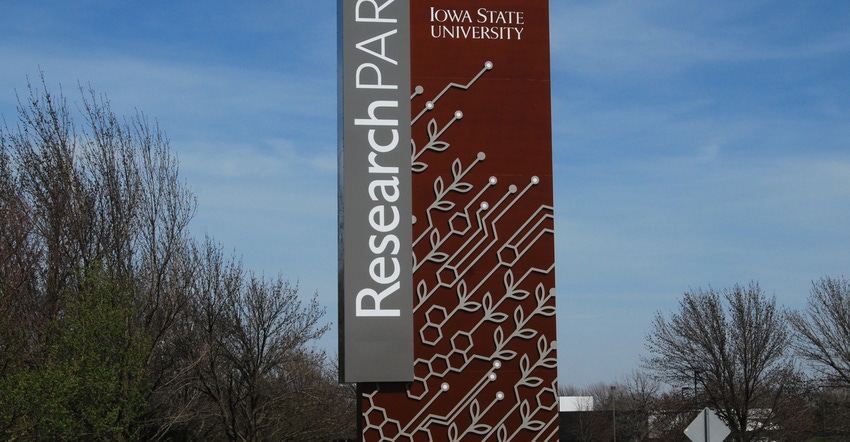May 10, 2018

Deere & Co. plans to construct a new 33,000-square-foot facility at the Iowa State University Research Park in Ames as a design and test lab for agricultural spraying and application technology. The facility is expected to be completed by summer 2019.
“As a leader in precision agriculture, John Deere is focused on providing customers with innovative, high-quality products and services,” says Aaron Wetzel, vice president of global crop care. “Our customers will benefit from this investment, as the spray lab will enhance product design and improve our development cycle.”
The new test center will allow increased collaboration with ISU faculty and students. In 2017, John Deere opened a strategic technology innovation center in the ISU Research Park to work with the company’s business units and complement John Deere’s global network of technology and innovation centers. Some employees from the current center at Ames will be in the new building when it’s completed.
Wendy Wintersteen, ISU president, says, “We are thrilled John Deere continues to recognize Iowa State’s exceptional return on investment. The recently announced plans for the ISU Research Park will enhance Deere’s access to our expertise, research and development opportunities, and to ISU’s student workforce.”
Deere recently expanded its activity in crop care technologies and acquired several companies that offer innovative spraying technologies for ag customers around the world. For more information, visit johndeere.com.
ISU Research Park assists both established and startup companies in connecting with Iowa State’s resources: students, research entities, equipment, etc. ISU Research Park is home to more than 90 companies employing 2,050 people and occupies just under 1 million square feet of commercial real estate on 400 acres.
Source: Deere & Co.
Diagnose bean problems with smartphone
New technology developed by Iowa State University scientists could allow anyone with a smartphone to see crops much the same way plant breeders and scientists do. The researchers’ findings, published recently by the National Academy of Sciences, demonstrate how artificial intelligence can identify a range of common stresses in soybeans. The technology can improve efficiency for plant breeders and farmers, and it demonstrates the growing value of automation in agriculture.
ISU agronomists and engineers began collecting a large data set of around 25,000 images of soybean stresses taken in Iowa, says Arti Singh, adjunct professor of agronomy. The team developed an automated machine-learning framework to find patterns in soybean leaf images that correlate with eight common sources of stress (diseases, nutrient deficiency, herbicide injury, etc.). The result is a computer application that can diagnose and quantify the amount of various foliar stresses by analyzing digital images of soybeans.
Applying AI to agriculture
Scouting crops and visually measuring stress is time-consuming and often inconsistent, both for plant breeders and farmers. An automated tool could save time and produce more standardized results.
“We want this technology to allow machines to see with the eyes of an experienced plant breeder,” Singh says.
The researchers compared the performance of their program with actual diagnoses from trained plant scientists, and the results show excellent correlation. In addition, the program qualifies its diagnosis by providing the visual symptoms it uses to reach its conclusions.
This technology is currently only available for scientists to test, but the ISU researchers say they intend to use the application on smartphones to make the product widely available. This tech also has potential for use in unmanned aerial vehicles or drones, as well as ground robots.
“This is a prime example of how artificial intelligence can be applied to agriculture,” says Soumik Sarkar, ISU professor of mechanical engineering. “It can provide more automation and efficiency than the traditional way of diagnosing these crop stresses.”
Source: Iowa State University
You May Also Like




